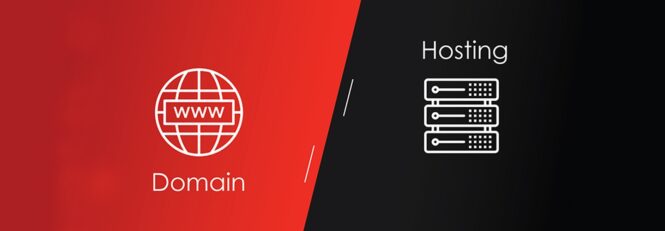Whether you’re launching a personal blog, building an online store, or running a company website, web hosting is one of the most critical components of your online presence.
Without it, your website simply wouldn’t be accessible to visitors. But for many, the concept of web hosting can be a little confusing at first.
This guide breaks it down, explains the options available, and helps you understand what to look for when choosing a provider.
What Is Web Hosting?

In the simplest terms, web hosting is a service that allows you to publish your website on the internet.
It works by storing your site’s files – such as HTML pages, images, videos, and code – on a server.
When someone enters your web address into a browser, the hosting server delivers your content to their screen.
Every website needs hosting, and different types of services suit different needs.
Understanding these options can help you make smarter decisions and avoid common pitfalls.
Types of Web Hosting
There are several types of web hosting, each offering different levels of performance, control, and scalability:
| Hosting Type | Best For | Pros | Cons |
| Shared | Beginners, blogs | Affordable, easy to use | Slower, less secure |
| VPS | Medium traffic, developers | Better performance, scalable | Some technical knowledge needed |
| Dedicated | High-traffic sites, businesses | Full control, high performance | Expensive, needs maintenance |
| Cloud | Growing businesses, e-commerce | Scalable, reliable | Varies in cost |
| Managed | Non-tech users, busy professionals | Hassle-free, secure | More costly, less control |
Key Features to Look For
When choosing a web hosting provider, there are a few key features you should pay close attention to:
- Uptime Guarantee: A reliable host should offer at least 99.9% uptime to ensure your site is always accessible.
- Speed and Performance: Fast-loading sites keep users engaged and support SEO. Look for providers that offer SSD storage, content delivery networks (CDNs), and data centres near your target audience.
- Security: Features like firewalls, SSL certificates, regular backups, and malware protection are essential for keeping your site safe.
- Scalability: As your site grows, you may need more resources. A good host allows easy upgrades.
- Customer Support: Look for 24/7 support through multiple channels – especially if you’re new to hosting.
- Ease of Use: A user-friendly control panel like cPanel can make managing your site much easier, especially if you’re not technically inclined.
Domain Names and Hosting

These two services work hand-in-hand. The domain is your website’s address, while hosting is where it lives. Many providers offer both services together for convenience, and some even include a free domain with hosting packages.
It’s a good idea to keep your domain and hosting with the same provider for simplicity – though experienced users may choose to keep them separate for flexibility.
Managing Your Website After Hosting Is Set Up
Securing a web hosting plan is just the beginning. Once your site is live, ongoing management becomes essential to ensure performance, security, and content relevance.
This includes regularly updating your website platform (like WordPress), monitoring site traffic, and performing backups in case anything goes wrong.
Most hosting providers offer a control panel where you can manage files, databases, email accounts, and security settings. It’s worth taking time to explore these tools – even if you’re a beginner. Many hosts also include automated backup systems and performance monitoring, which can save time and prevent data loss.
If you’re planning to add content regularly – like blog posts or product updates – you’ll want a user-friendly content management system (CMS). Choosing the options that supports your CMS (like WordPress, Joomla, or Drupal) can make long-term management much easier.
Hosting for Different Needs

Different websites require different types of hosting. A personal blog with a few hundred monthly visitors can run just fine on shared hosting, while a growing e-commerce store might need cloud or VPS hosting to handle more traffic and transactions.
Think carefully about your website’s purpose, traffic expectations, and technical requirements before choosing a plan. Most providers offer guidance or comparison tools to help you decide.
Why Good Hosting Matters
Web hosting affects nearly every aspect of your online experience – from how fast your site loads, to how secure it is, to whether it’s accessible when users need it.
Choosing the right host ensures your visitors enjoy a smooth, secure, and responsive experience.
It also helps protect your brand’s reputation, especially if you rely on your website to generate leads or sales.
Downtime, poor support, or slow speeds can cost you more than just money – they can damage trust and lose you valuable traffic.
Choosing a Hosting Provider
When evaluating web hosts, consider performance, customer reviews, included features, and overall value. Some hosts specialise in certain types of websites (e.g., WordPress), while others offer more general solutions.
For those looking for reliable, user-friendly, and secure options, web hosting services like those offered by Amray Hosting combine modern infrastructure with straightforward pricing and helpful support, making them ideal for individuals and small businesses alike.
Common Mistakes to Avoid When Choosing a Host

Adding a bullet list here offers practical advice for decision-making – something many beginners need.
Even with all the options available, it’s easy to make a misstep when choosing your first host. Here are the most common pitfalls to watch for:
- Choosing the cheapest option without checking support or features
- Ignoring uptime guarantees or performance benchmarks
- Skipping security features like SSL, backups, and malware protection
- Underestimating future traffic growth, leading to slow or unstable sites later
- Not reading the fine print on renewal pricing or hidden fees
- Overcomplicating setup by choosing overly technical plans when simpler ones suffice
Final Thoughts
Whether you’re starting a small blog or launching a full-scale online store, web hosting is the foundation of your digital presence. With the right provider and plan, you can ensure your site is fast, secure, and always available to your visitors.
By understanding the basics and choosing wisely, you’ll be better equipped to build and grow a successful website that serves your needs now and into the future.
 Imagup General Magazine 2025
Imagup General Magazine 2025
